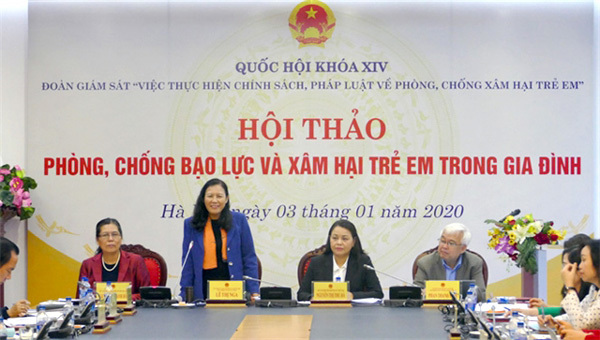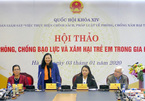“Please don’t ask me whether I will get married. It hasn’t crossed my mind.” As Phuong intoned, single Vietnamese sisters nodded in approval.
Asking youngsters, especially women, about their relationship and matrimonial plans has long been considered an act of intimacy by many Vietnamese people, one that allows them to proclaim just how normal or abnormal you are for your age.
The nosiness has been justified by a Government decision announced last week that advises Vietnamese nationals to marry before 30 and bear a second child before 35.
The policy aims to maintain a replacement total fertility rate of 2 to 2.2 children for each woman in her reproductive life. Couples who have two children will be prioritised in admissions to public schools as well as with access to public housing projects. The Government also said it would pilot measures to increase the social responsibility of those who do not want to get married or get married late.
Vietnam is one of the fastest ageing countries in Asia with the transition from the population ageing period to the aged population taking only 17 to 20 years, far shorter than other developed countries such as France (115 years) or Switzerland (85 years).
Data from the General Statistics Office shows Vietnam will have 21 million people over 60 years old by 2038, accounting for 20 per cent of the total population. The number is expected to reach 27 million by the end of 2050.
“I applaud this policy as it shows the Government has recognised Vietnam’s risk of labour shortage in the future and tried to offer a solution,” said 29-year-old Chi Lan in HCM City, mother of a one-year-old boy, adding, “the solution is reasonable as it uses economic incentives to encourage citizens to bear children."
Agreeing, 25-year-old Pham Huyen, a master student of adult education in Malta, said many studies had proven the best age for pregnancy was between 20 and 30.
“For young couples who are mentally prepared and financially stable, it is healthy for the women to give birth earlier in life and help to prolong the country’s golden population era,” she said.
However, not every youngster can afford marriage.
“It takes a couple a year to save up about VND100 million (US$4,300) for a normal wedding,” said 25-year-old Khanh Huyen, a social worker in Hanoi.
“Moreover, marriage is also about fate. Vietnamese women are gaining autonomy in deciding their marital status. Many of them have not been hustled by the social norm saying 30 is old and it’s better to grab a random man to be your husband rather than stay single for the rest of your life,” she added.
Khanh Huyen said the policy would increase social stigma over people labelled as FA (forever alone) or late married.
Meanwhile, the incentives are unrealistic to many.
“Couples in HCM City – a locality with a low fertility rate – will be the major beneficiaries. In reality, myriad public housing projects have been suspended. As demand outweighs supply, the prices hike. Many couples with two children may not be able to buy apartments even with subsidies,” said Chi Lan, adding slots at public schools in the city are also limited.
Khanh Huyen questioned the Government’s plan to increase the social responsibility of singles, asking for careful consideration of each choice’s carbon footprints.
“Human population growth causes environmental damage. Therefore, asking for more contributions from people who give up on childbearing or marrying cannot address any problem,” she said.
 |
| At the workshop on prevention and combating child abuse and domestic violence held in Hanoi. (Illustrative image. – Photo daibieunhandan.vn) |
A survey released by the National Assembly in April revealed that 9.8 per cent of adults had no idea of the existence of the Law on Children. Meanwhile, up to 47 per cent of children do not know they are protected by law. From 2015 to 2019, there were 337 children killed, 418 fell pregnant and 198 suffered mental disorders as a consequence of child abuse. This data, however, is just the tip of the iceberg, according to the NA Standing Committee.
“Vietnamese people, including me, think that it is our responsibility to educate and protect our children and expect the same thing from other parents,” said Tra My, a bride-to-be in Quang Tri Province.
“Therefore, in case of child abuse, I think it is due to living circumstances or parents’ failure to keep eyes on their children,” added her fiance Phuoc Hanh.
Pham Huyen argued the opinion, saying Vietnamese children are exposed to many risks including pollution, school violence or sexual abuse which make well-informed people think twice before deciding to bear a child.
“Only by solving these issues can the Government persuade citizens to marry and have children,” she said. VNS
Khoa Thu

Government programme encourages marriage before the age of 30
Prime Minister Nguyen Xuan Phuc has approved a birth rate adjustment programme towards 2030 which encourages people to get married before the age of 30 and women to give birth to the second child before they get 35 years old.

Children should be protected from violence and sexual abuse
While efforts are being made to prevent violence against children, much more work still needs to be done.
 When pop star Bich Phuong released her 2017 hit Bao Giờ Lấy Chồng?, or 'When Will You Get Married?', she sang for millions of single Vietnamese women in their 20s and 30s, parodying relatives' intrusive questions during Lunar New Year.
When pop star Bich Phuong released her 2017 hit Bao Giờ Lấy Chồng?, or 'When Will You Get Married?', she sang for millions of single Vietnamese women in their 20s and 30s, parodying relatives' intrusive questions during Lunar New Year.